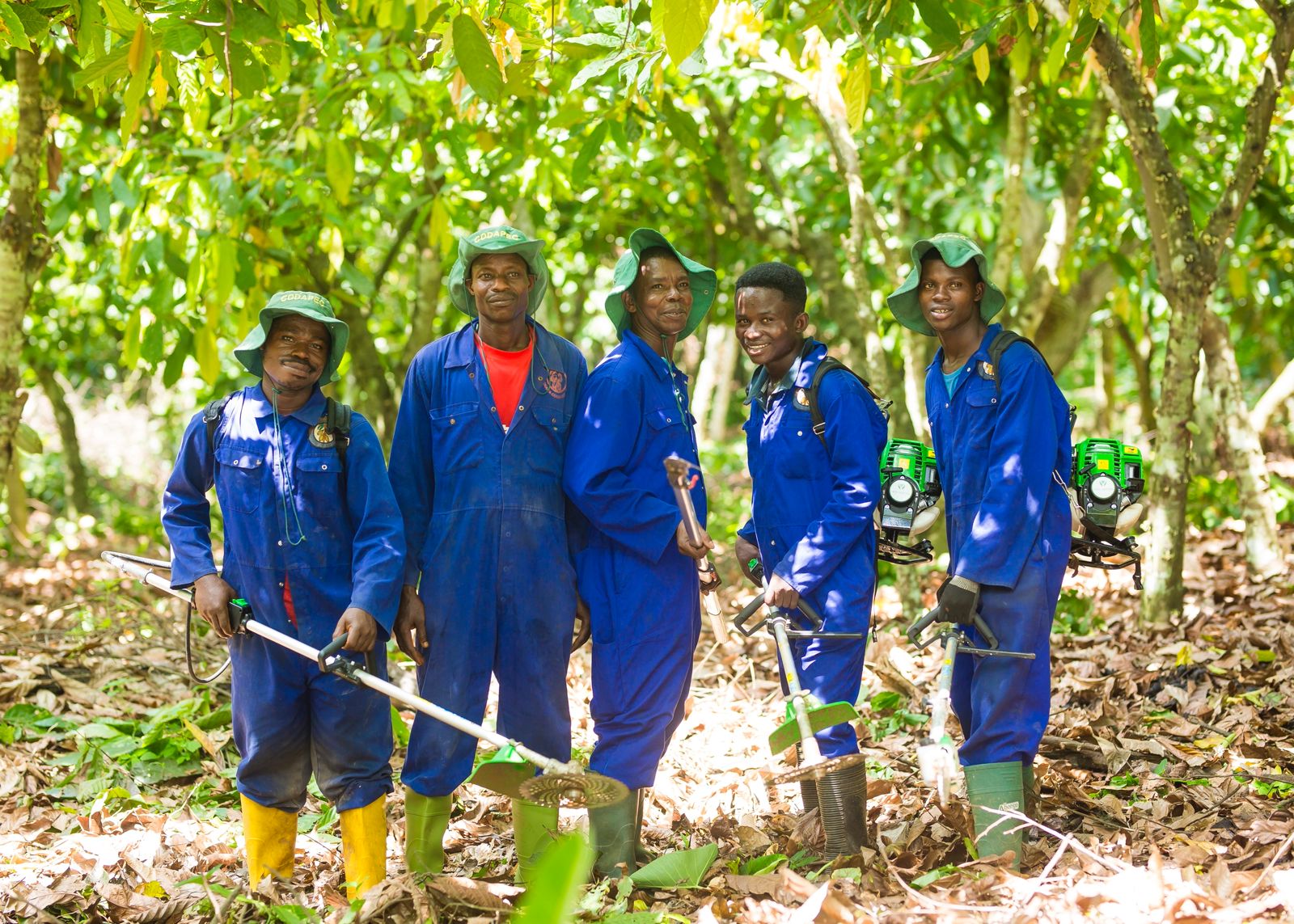MAXIMIZING COCOA YIELDS: THE MAGIC OF PRUNING
Cocoa stands as Ghana's primary export, playing a pivotal role in generating export revenues and sustaining the livelihoods of countless cocoa farmers and stakeholders throughout the value chain.
Since Ghana's inclusion in the league of cocoa-producing nations over 14 decades ago, this crop has significantly influenced various sectors of the country's economy, contributing to the development of educational, health, and infrastructural initiatives.
Over the years, Ghana has not only become a global force in producing high-quality cocoa but has also secured the second position globally in annual cocoa production, cementing its international reputation.
Despite these achievements, the cocoa sector has faced challenges, particularly in maintaining stable production levels. In response, Ghana has implemented several policy reforms to address the bottlenecks hindering cocoa production. Notably, starting in 2017, the sector initiated a series of policy measures known as "Productivity Enhancement Programmes (PEPs)’’
The PEPs have taken the form of a concerted effort to encourage farmers to adopt major agronomic practices geared towards improving cocoa yield per hectare. This comprehensive strategy includes interventions such as cocoa farm rehabilitation, mass spraying, pruning, hand pollination, and subsidized fertilizer application, among others, over the past seven years.
While the rehabilitation of dead farms promises long-term benefits and value, the combined impact of pruning and hand pollination has emerged as a particularly effective approach, providing short-term effects on yields. Despite being traditional agricultural best practices, the widespread application of pruning and hand pollination in cocoa farming was historically limited, possibly due to insufficient education on their substantial benefits.
In the 2018/19 period however, COCOBOD placed a significant emphasis on pruning, culminating in a pilot scheme aimed at pruning 14% of the country's viable cocoa stock. Supporting this initiative, the procurement and distribution of 100,000 multi-purpose motorized pruners led to a pilot exercise with a success rate exceeding 100%. Some experts attribute Ghana's record-breaking cocoa production of over one million metric tonnes in the 2020/2021 crop year to the successful integration of the twin productivity enhancement drivers: pruning and hand pollination.
This article delves into the practice of pruning, exploring its advantages and impact on cocoa production, making a compelling case for its widespread adoption by farmers.
Pruning is essentially farm hygiene exercise that involves carefully cutting dead, diseased, and excessive branches from cocoa trees ahead of their flowering season. When done efficiently, pruning leads to a significant increase in flower development which results in increased crop yield when pollinated. Pruning, albeit an existing cultural practice in cocoa farming, was not widely adopted by farmers until the introduction of the mass pruning initiative with a modern twist, combining the use of technology and innovation to demystify the process, increase crop yield and improve farmer income, with the aim to get farmers aboard the pruning train. Pruning is hence acclaimed as the fundamental farm preparation exercise towards a bumper cocoa harvest. COCOBOD advises farmers and farmer cooperatives to ensure that farms are pruned from February each year for maximum impact. When properly carried, the following competitive advantages will be witnessed:
1. Enhanced Crop Yield
As excess and/or diseased tree branches and pods are removed, it allows the cocoa tree to focus its energy on remaining healthier pods. The tree therefore channels a lot more nutrients to the remaining pods, resulting in abundant cocoa yields and ensuring a stable supply of cocoa to the global market.
2. Quality Improvement
With Ghana holding the reputation as the producer of the best quality cocoa beans in the world, pruning plays a vital role in the country’s production of premium cocoa. The removal of excess shade through pruning allows enough penetration of sunlight, facilitates proper development of pods and minimizes the risk of blackpod and other conditions such as moss growth. The end result of this is the production of quality cocoa beans.
3. Disease Control
Cocoa trees are susceptible to various diseases such as the black pod. Pruning promotes early detection and control of infected pods. By removing the infected branches, the spread of the disease is curtailed, ultimately safeguarding the trees from damage.
4. Improved Farmer Livelihoods
The increased yield and improved quality brought about by pruning, significantly increases farmer income, especially with the current increase in cocoa prices. A higher income ensures better living standards and may serve as an incentive for the younger generation to engage in cocoa farming.
5. Promotes Sustainability
Pruning extends the lifespan of cocoa trees by minimizing the need for deforestation. In recent times, there have been global demands for sustainable cocoa farming practices which include the cessation of deforestation. Ghana’s pruning approach aligns with global efforts to promote sustainability through the conservation and protection of natural resources and biodiversity.
CONCLUSION
Pruning, once an unassuming practice, now sits at the forefront of modern cocoa farming, ensuring Ghana’s place as the leading producer of premium cocoa. COCOBOD’s inclusion of pruning in the Productivity Enhancement Programmes (PEPs), has proven to be a game changer in Ghana’s cocoa industry, setting the country up for long-term success and prosperity of cocoa farmers and the industry as a whole.
In my next edition, I shall be drawing a link between pruning and hand pollination and make a case for its adoption by our farmers.
Story by Agnes Annoh, Public Affairs
Supported by David Asare Oduro
